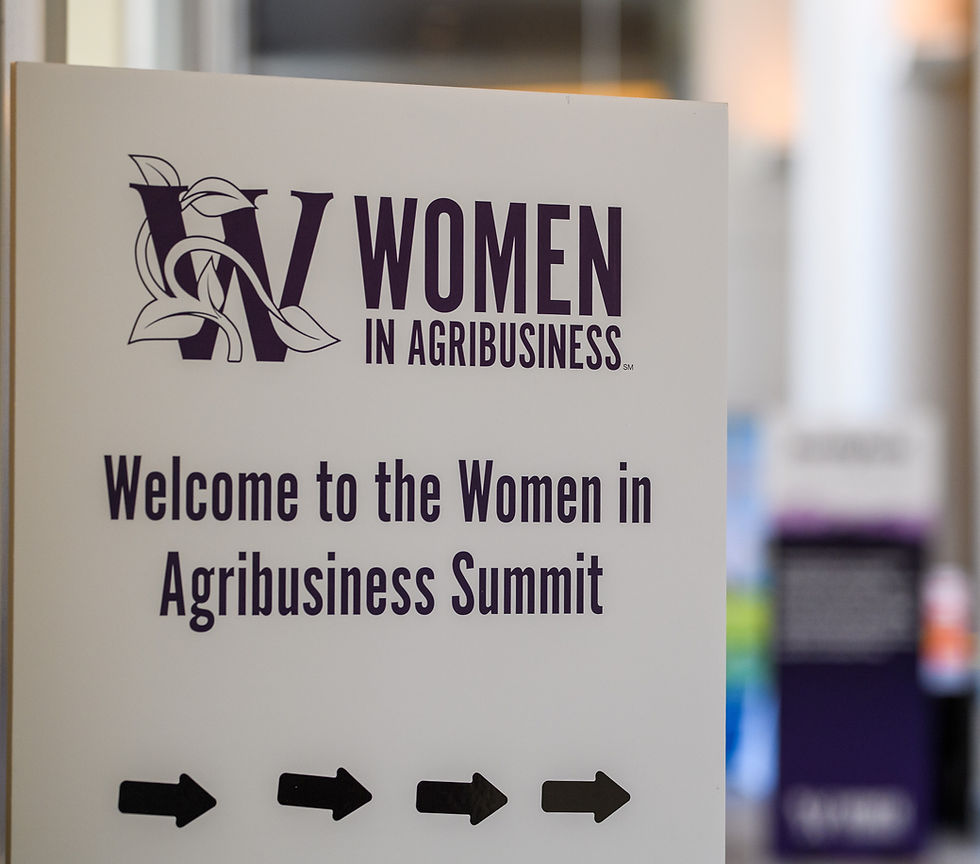Career Corner: How to Know if an MBA is the Right Choice for You
- Feb 20, 2024
- 5 min read
Updated: Feb 22, 2024
By Taylor Stoeckler and Dr. Samuel DeMarie, Iowa State University (February 20, 2024)
The Master of Business Administration has long been the gold standard for helping people move up the ranks of their business organizations into leadership roles. In this article, we demystify the MBA degree and provide the required knowledge to assess whether it is right for your career.
What is an MBA?
A Master of Business Administration (MBA) is a postgraduate degree focused on theoretical and practical training for business management. The versatility and relevance of an MBA make it one of the most popular graduate degree programs on the market. The MBA increases graduates' chances for success through enhanced functional business training, giving them a competitive advantage in the job market.

What Will You Learn?
MBA graduates receive a multi-disciplinary education, setting them up for success in any business area. The curriculum covers core business subjects, including accounting, finance, marketing, operations, human resources, strategic management, and more. Graduates also develop more robust critical thinking, problem-solving, communication, and leadership skills. An MBA degree demonstrates to employers that you can solve complex business programs and situations. This often leads graduates to an accelerated path into leadership roles.
What are the Additional Benefits of an MBA for Women in Agriculture?
Women with an MBA stand out among others in the agricultural industry. MBAs provide essential knowledge and skills that build confidence and establish credibility in the workplace. An MBA also provides a chance to invest in yourself and increase your earning potential. Women professionals with an MBA may qualify for higher-level management positions, which can offer more responsibility, higher salaries, and more significant influence. Women have always had a major impact on agriculture, and women leaders will continue to contribute significantly to the future success of agribusiness.
What Types of MBA Programs are Available?
People often think they need to make personal sacrifices to pursue an MBA. From our experience talking with prospective students, many of their concerns for enrolling in an MBA program include time away from family and friends, significant financial investment, and workload on top of a demanding career. The MBA has evolved over the last century, and now there are several ways to do it.
A traditional full-time MBA program requires in-person classes. This format typically does not allow students to work full-time during their program. Suppose you don't want to leave the workforce. In that case, most institutions offer flexible options, including part-time MBA programs (in-person or online) and hybrid Executive MBA programs designed for busy working professionals. Classes are typically provided in person during the evenings or on weekends and supplemented with some online coursework. Some programs may also offer more specialized MBAs focusing on a particular industry.
The Ivy College of Business: Executive MBA program at Iowa State University is an example of a flexible program designed explicitly for leaders in food, agriculture, and biosystems industries. Classes are designed to meet in person in Ames, Iowa, Friday and Saturday every three weeks with reduced coursework between class sessions.
What sets the Ivy Executive MBA apart from others:
Curriculum customized to professionals in food, agriculture, and biosystems.
Leadership Speaker Series featuring presentations from high-profile executives.
Three-day working trip to Washington, D.C., and a 10-day international business trip.
Cohort model averaging 15 years of work experience and comprised of about 40 to 50 percent women.
Executive Advisory Council featuring industry executives from leading food, agriculture, and biosystems companies such as John Deere, Bayer, Land O'Lakes, and more.

The Ivy Executive MBA provides excellent opportunities to expand professional networks. The Leadership Speaker Series introduces students to thought leaders in the agricultural industry and offers the chance to ask them questions personally. The cohort model promotes relationship building among like-minded peers in similar careers. This network is invaluable for finding new career opportunities, getting advice on career development, and gaining access to mentors and industry leaders.
How Long Will It Take to Earn an MBA?
A traditional full-time MBA program, including summer classes or internships, takes two years to complete. Other various timelines are available for MBA programs designed for working professionals. Most programs may take 2 -3 years, while accelerated programs can take as little as one year. Summer classes may or may not be required, depending on the program.
The Ivy Executive MBA is an 18-month program. Classes are scheduled over four semesters with no summer class commitments. This schedule gives students a break to focus more on other obligations and recharge for a new academic year.
How to Choose the Best Program for You
Our best advice for choosing the right program is to reflect on your professional goals and envision how an MBA program will fit into your daily life. Ask yourself where you see your career going next and how much time you realistically have available to dedicate to an MBA. Not only is it essential to select a program that helps you meet your goals, but also one that sets you up for success during the process. Selecting an MBA program is a personalized decision, and options are available for everyone.
Why the Ivy Executive MBA May be Right for You
Are you a working professional in food, agriculture, and biosystems in the Midwest? Are you ready to take the leap for an MBA? Below are some reasons to consider the Ivy Executive MBA:
Customized industry-focused curriculum.
18 months of coursework and no summer classes.
Friday and Saturday classes that make it possible to balance family and career.
Concierge service — we take care of the details so you can focus on the big picture.
The application process is simple and free to apply. No GMAT/GRE is required.
Pursuing an MBA degree and choosing the best program for your situation can jump-start your career path. We recommend that you invest the time and attention to make the correct decision to support your career goals.
ABOUT THE AUTHORS

Taylor Stoeckler, M.Ed., is the coordinator of the Executive MBA program for leaders in food, agriculture and biosystems in the Ivy College of Business at Iowa State University. She is responsible for all program operations and provides support for all Executive MBA students.
She received both her Master of Education and her undergraduate degree in marketing and international studies from Iowa State University.

Dr. Samuel DeMarie is an associate professor of management and the founding director of the Executive MBA program for leaders in food, agriculture and biosystems in the Ivy College of Business at Iowa State University. He received his Ph.D. in strategic management from Arizona State University, an MBA from UNLV, and an undergraduate degree in accounting from Northern Arizona University. Prior to entering academia, Dr. DeMarie spent 11 years in a variety of executive and corporate officer positions. In academia, he has over 25 years of experience teaching in a variety of different MBA formats, including currently instructing the strategic management course in the Ivy Executive MBA program. His research interests center on the effects of new technologies on competition, virtual teamwork, divestiture, and strategic flexibility. Dr. DeMarie has published research in a variety of top academic journals and has presented his work at numerous national and international conferences.








